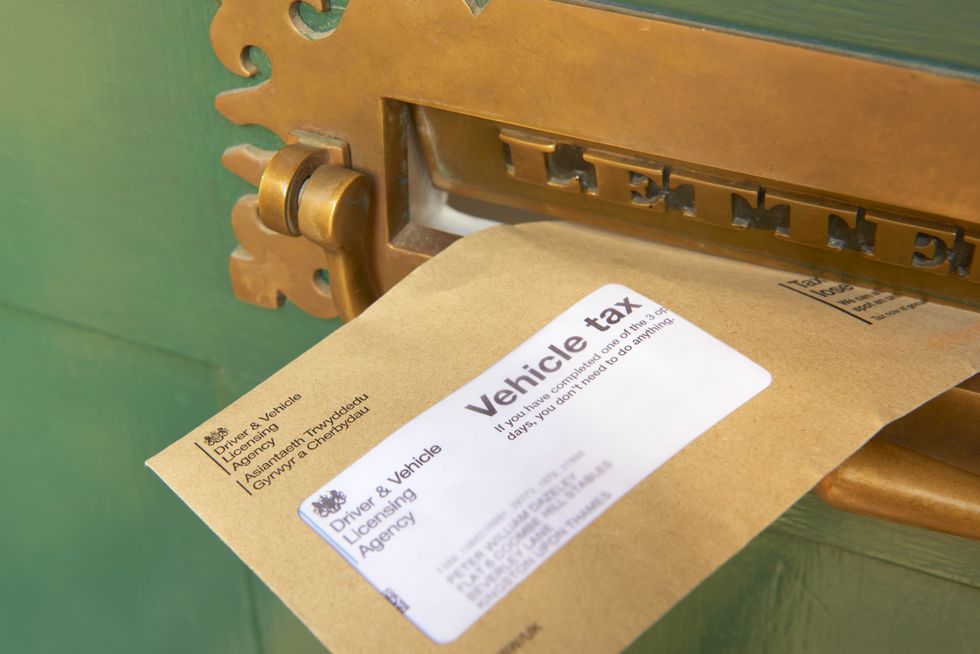WATCH: Rachel Reeves announces massive new car tax changes
GB NEWS
'It risks making EVs less accessible at a time when the UK is committed to phasing out petrol and diesel vehicles'
Don't Miss
Most Read
Trending on GB News
Experts are warning drivers that recently announced car tax changes are a "step backwards" from the new Labour Government in getting more Britons behind the wheel of an electric vehicle.
Chancellor Rachel Reeves unveiled the Autumn Budget at the end of October and announced a host of major changes, including inheritance tax, capital Gains Tax and Vehicle Excise Duty.
It was revealed that Vehicle Excise Duty rates would be uprated for cars, vans and motorcycles in line with inflation from April 1, 2025.
However, a further announcement will see the VED First Year Rates for new cars registered on or after April 1, 2025, to strengthen incentives to purchase zero emission vehicles by "widening the differentials" between EVs and internal combustion engine cars.
Do you have a story you'd like to share? Get in touch by emailingmotoring@gbnews.uk

Drivers could face enormous car tax hikes next year
DVLA/PA
This will see zero emission cars pay the lowest first year rate at £10 until 2029-2030, while cars emitting between one and 50g/km of CO2, including hybrids, will increase to £110 and £130 for vehicles emitting 51-75g/km.
All other rates for cars emitting 76g/km of CO2 and above will double from their current level for 2025-26, which could see some motorists pay thousands of pounds extra.
People who buy the most polluting petrol and diesel cars (over 255g/km) from April 1, 2025, are expected to fork out £5,490 when rates double next year.
Marc Cal Din, founder of EV Charger Installation, warned drivers of incoming car tax changes set to launch within the next six months as motorists could face higher bills.
He continued, saying: "As EV adoption grows, it’s essential to maintain financial incentives for drivers.
"This tax change feels like a step backwards, and it risks making EVs less accessible at a time when the UK is committed to phasing out petrol and diesel vehicles."
Budget documents show that the Expensive Car Supplement will also remain in place at least until "a future fiscal event". This currently applies to new electric vehicles with a list price above £40,000.
This costs an additional £410 a year and could see motorists across the UK with the latest electric vehicle models see their car taxes hiked after April next year.
READ MORE: Nigel Farage just issued stern warning over China but is it valid?
The expert also highlighted how more needed to be done to help motorists adapt to a future with more electric vehicles, especially with public charging.
Campaigners have consistently called for more to be done to make public chargers cheaper as some drivers may not have the ability to charge at home.
One of the most popular suggestions would be for the Government to cut the rate of VAT on public chargers from 20 per cent to five per cent - matching the rate attributed to home chargers.
Cal Din added: "Reducing VAT on public charging would encourage EV use across all demographics, especially those without private charging options.
LATEST DEVELOPMENTS:
- Major car brands recall 208,000 vehicles over serious accident fears - 'Should be towed immediately'
- Local authority unveils plans to turn hundreds of roads into 20mph zones with drivers urged to respond
- Motorists given only months to prepare for Rachel Reeves car tax changes which could see drivers pay double

Car tax changes will come into effect in April next year
GETTY"As we aim for a cleaner, more accessible transport system, policies need to support drivers and remove barriers to EV ownership."
At present, there are 71,459 chargers around the UK at more than 36,00 locations and almost 109,000 connectors, according to Zapmap.
The data shows that just over 1,000 were installed in October 2024. Many are still hoping that the Government will achieve its target of having 300,000 chargers installed by the end of the decade.








